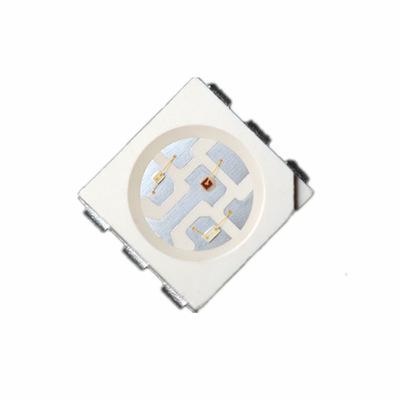RGB:
RGB is a color model that represents the
colors red (R), green (G), and blue (B). It is an additive color model, where
different colors' brightness and blending ratios can generate various colors of
light.
In the RGB model, each color has a range of values from 0 to 255,
with 0 indicating no emission of that color's light and 255 indicating the
maximum brightness of that color. By adjusting the brightness and blending
ratios of red, green, and blue, hundreds of thousands of different colors can be
created.
The RGB model is widely used in many fields, particularly in
display technologies. Electronic devices such as TVs, computer monitors, and
smartphone screens all utilize the RGB model to display images and videos. By
controlling the brightness of the red, green, and blue sub-pixels of each pixel,
rich colors and details can be presented.
In addition to display
technologies, the RGB model is also extensively used in the field of lighting.
RGB LED fixtures incorporate LED chips of red, green, and blue colors, and by
adjusting the brightness of each color, various colored lighting effects can be
created, meeting different lighting requirements in diverse settings.
In
summary, RGB is a color mixing model based on the colors red, green, and blue,
and by adjusting brightness and blending ratios, a wide array of vibrant colors
can be created. It finds widespread applications in display technologies and
lighting fields.

(pic:5050RGB)
Colorful Light Beads:
Colorful light beads are
lighting devices that produce a variety of colorful effects and lighting
changes. They are typically manufactured using LED (Light Emitting Diode)
technology and incorporate multiple color LED chips such as red, green, and
blue. By controlling the brightness and blending ratios of these different color
LED chips, a wide range of dynamic lighting effects can be
achieved.
Colorful light beads possess flexibility and programmability,
allowing for adjustments and control through external controllers or software.
Users can select different colors, brightness levels, and patterns according to
their needs, catering to various scenes and creating desired ambiances. For
example, soft warm tones can be chosen to create a cozy atmosphere, or vibrant
rainbow colors can be selected to add liveliness and delight.
Colorful
light beads are widely employed in indoor and outdoor lighting decoration areas.
They can be used in settings such as homes, commercial buildings, stage
performances, entertainment venues, etc., enhancing the environment with colors
and visual effects. With the energy-efficient and long lifespan characteristics
of LED technology, colorful light beads also offer low energy consumption and
maintenance costs.
In conclusion, colorful light beads are lighting
devices with a variety of colorful effects and programmable controls. By
utilizing LED technology and different colored light sources, they create
diverse lighting effects and provide unique illumination and decorative effects
for various situations.
Difference between RGB and Colorful
Lights:
RGB and colorful lights are two different concepts, and
they differ in the following aspects:
1. Definition and
Function: Colorful lights refer to light beads that exhibit a range of
vivid and dynamic color effects, allowing for personalized lighting decoration
through color control, brightness adjustment, and dynamic effects. On the other
hand, RGB is a color model that represents the primary colors of red (R), green
(G), and blue (B). It achieves various colors by adjusting the brightness and
blending ratios of these three colors.
2. Principles and
Technology: Colorful lights create their multicolored effects through
phenomena like reflection, refraction, and interference of light. They typically
employ LEDs (Light Emitting Diodes) as their light source. In contrast, RGB is a
color model based on light, utilizing the brightness and blending ratios of red,
green, and blue lights to generate different colors.
3.
Application Fields: Colorful lights are primarily used in lighting
decoration, suitable for homes, commercial spaces, landscapes, and other
settings where lighting effects are desired. RGB, on the other hand, has
wide-ranging applications in various fields, including electronic displays,
computer graphics, stage lighting, photography, television, and cinema, to
produce a diverse range of colors.
4. Control Methods:
Colorful lights are usually controlled through controllers or dimmers to adjust
colors, brightness, and dynamic effects, allowing for versatile lighting
changes. RGB control typically involves circuit-based control, utilizing
dedicated RGB controllers or programming to achieve color and effect
control.

To summarize, there are clear distinctions between
colorful lights and RGB in terms of definition, principles, applications, and
control methods. Colorful lights are multicolored light beads, while RGB is a
light-based color model that generates different colors by adjusting the
brightness and blending ratios of red, green, and blue.
 pkgled
灯珠Q&A
发布时间:2023-07-24 16:37:44
浏览量:1
pkgled
灯珠Q&A
发布时间:2023-07-24 16:37:44
浏览量:1

